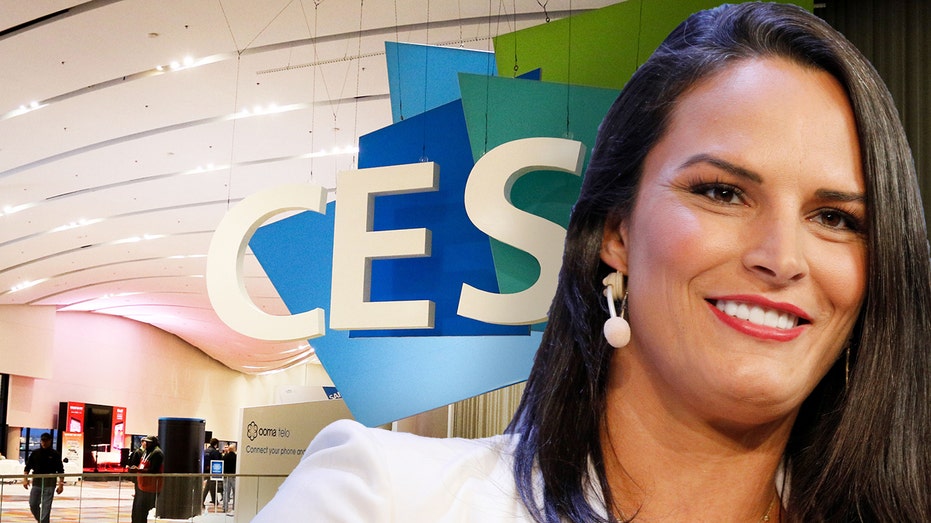Sex tech industry sees rapid growth as CES exposure helps normalize sexual wellness
Investors are taking notice, expert says
A year after a vibrator won an innovation award at the annual Consumer Electronics Show, sex tech was back in a big way at this year's CES.
Organizers opted to allow tech-based sexual products at this year's show "on a one-year trial basis," they said following a controversy last year when the group behind the event, the Consumer Technology Association, disqualified and then re-qualified the award-winning Ose vibrator.
"Products must be innovative and include new or emerging tech to qualify," the organizers noted.
Personal devices like the Ose "are a great introduction" to sex tech, but the field encompasses much more, according to Bryony Cole, host of the Future of Sex podcast. Technology is being developed for a variety of benefits like sexual health, sex education and combating sex crimes, she told FOX Business.

Ose maker Lora DiCarlo at the Consumer Electronics Show. (Justin Solomon/Getty Images)
CES ORGANIZERS APOLOGIZE, RETURN AWARD TO WOMEN’S STARTUP
"Sex toys have moved into the category of wellness, and are more and more seen as an important component to self-care, which is a huge progress from the previous decade," Cole said. "I think this has helped raise the profile of sex tech to more than just sex robots or VR porn, but we still need to look at the broader category as including education and intimacy improvement."
For example, there's the YO sperm test, which allows men to check their sperm speed on their smartphones; Callisto, an online platform for victims to report on-campus or corporate sexual assault; and O.School, an educational video streaming service Cole called "like a Netflix for sex-ed."
Sex tech is a $30 billion industry, The Guardian reported in 2017. Market research firm Stratistics estimates the global sexual wellness market, including sex tech, will grow to $122.96 billion by 2026. Chains like Walmart and Urban Outfitters are already stocking some sexual wellness products like lube and toys, according to Cole.
"With more acceptance and normalized attitudes towards sex tech, we can expect to see these devices being sold in pharmacies, stocked in major department stores like Target and part of sexual wellness routines highlighted in mainstream media and by celebrities," Cole said.
GET FOX BUSINESS ON THE GO BY CLICKING HERE
SEX TOYS FOR WOMEN RETURN TO CES TRADE SHOW AFTER BAN
Companies working in the sex tech field do face some challenges compared to other businesses. Many of the fundamentals of setting up a small business — manufacturing, advertising, banking and distribution — can be "blocked" to those in the sex tech industry, according to Cole.
It can also be hard to find an investor "willing to invest in a taboo industry." Cole said that only a handful of female-focused sex tech companies have raised more than $5 million.
"Stigma and morality clauses tend to keep them out," Cole said.
Instead, many startups have turned to crowdfunding to get off the ground, according to Cole. One of this year's CES exhibitors, Dame, made the first sex toy allowed on Kickstarter. Dame co-founder Janet Liberman-Lu recently told MIT Technology Review that a lack of visibility is a problem for consumers because they don't know how common it is to use sex toys — studies in 2009 and 2010 found that nearly half of men and more than half of heterosexual women have used vibrators.
"Therefore, they feel isolated in using them," Liberman-Lu told Technology Review. "It really amplifies the shame and isolation that people feel, especially women."
By participating in events like CES, sex tech companies can help drive conversations to normalize sexual wellness and also gauge reaction to their products to help with brand messaging, Cole said. They can also find prospective investors — Ose maker Lora DiCarlo announced it received $2 million in funding after last year's CES.
STRIP CLUBS TORN OVER ADDING TECH AS REVENUES DROP, MILLENNIALS STAY AWAY

Morari Medical's "first wearable solution for premature ejaculation." (Credit: Morari Medical)
In addition to bringing in new investment, sex tech businesses that participated in CES 2020 are using the opportunity to further develop their products. Morari Medical, which unveiled its new wearable fix for premature ejaculation at CES, has partnered with San Diego Sexual Medicine to further test the product. And Come Play is prototyping Petl, and hands-free vibrator as it seeks to raise funds.
Going ahead, Cole said she thinks male sexual wellness will be the next trend in sex tech, following the rise of female-focused sex tech since 2016. Last year, male-focused sexual wellness companies that entered the market collectively raised $200 million, far more than female-focused companies raised, according to Cole.
"As sexual health and pleasure is normalized, the least talked-about domain is male sexual wellness," she said.
CLICK HERE TO READ MORE ON FOX BUSINESS




















